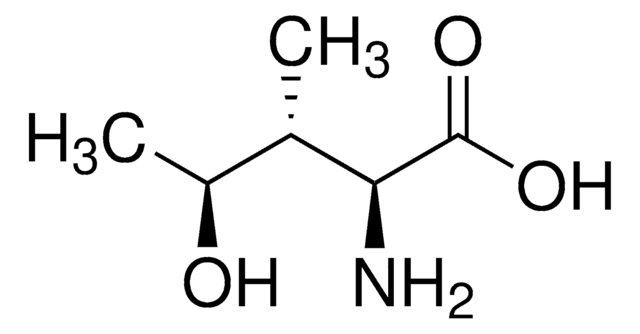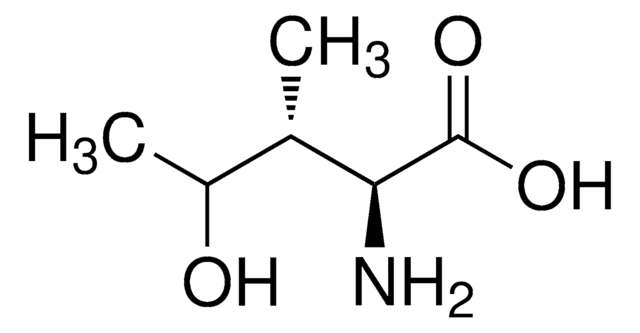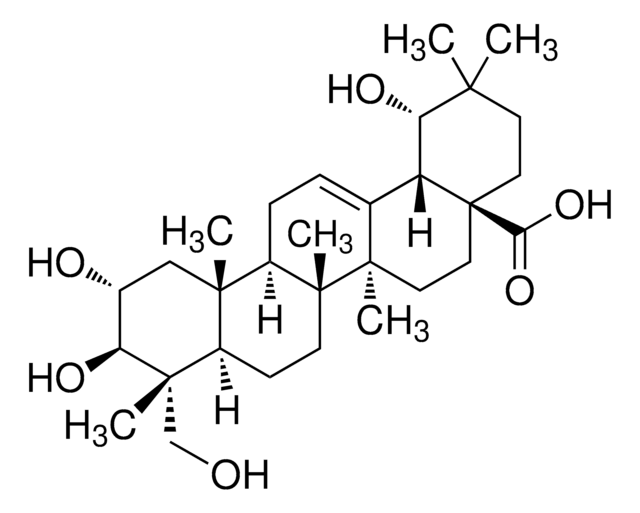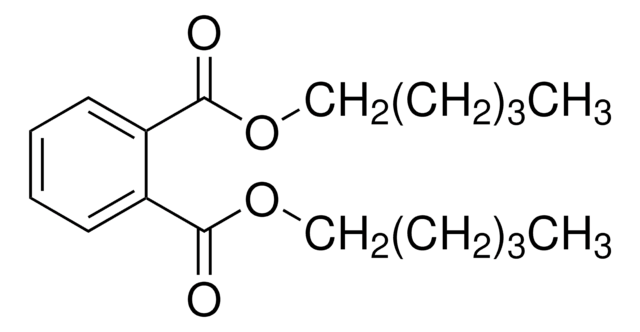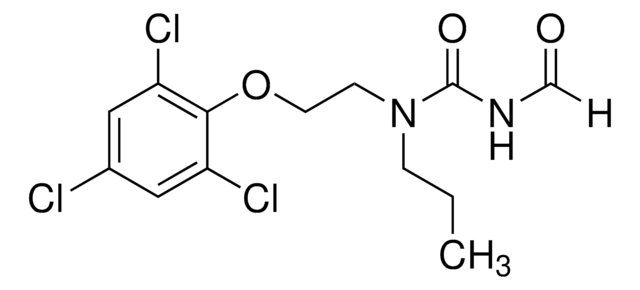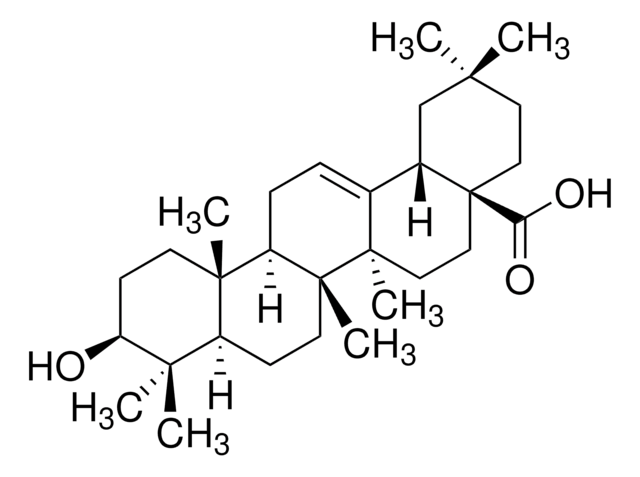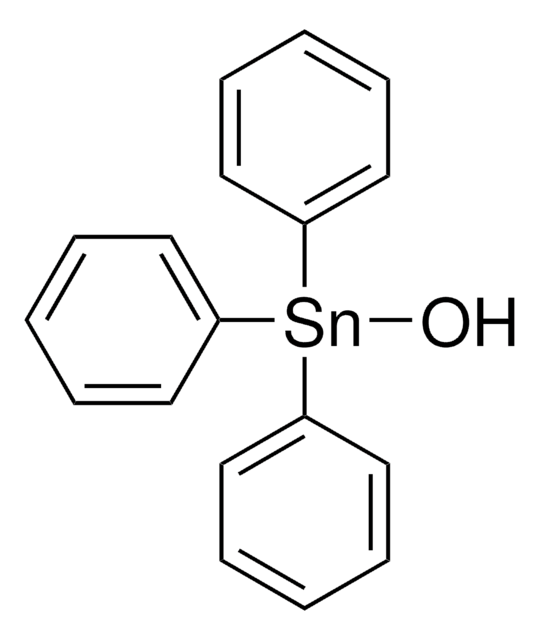49549
4-Hydroxy-L-isoleucine
≥98.0% (TLC)
Synonym(s):
(2S,3R)-2-Amino-4-hydroxy-3-methylpentanoic acid
About This Item
Recommended Products
Quality Level
Assay
≥98.0% (TLC)
optical activity
[α]/D +34.0±2.0°, c = 1 in H2O
color
white to off-white
storage temp.
2-8°C
SMILES string
CC(O)[C@H](C)[C@H](N)C(O)=O
InChI
1S/C6H13NO3/c1-3(4(2)8)5(7)6(9)10/h3-5,8H,7H2,1-2H3,(H,9,10)/t3-,4?,5-/m0/s1
InChI key
OSCCDBFHNMXNME-DSDZBIDZSA-N
Looking for similar products? Visit Product Comparison Guide
Biochem/physiol Actions
Packaging
Signal Word
Warning
Hazard Statements
Precautionary Statements
Hazard Classifications
Eye Irrit. 2 - Skin Irrit. 2 - STOT SE 3
Storage Class Code
11 - Combustible Solids
WGK
WGK 3
Flash Point(F)
296.6 °F
Flash Point(C)
147 °C
Certificates of Analysis (COA)
Search for Certificates of Analysis (COA) by entering the products Lot/Batch Number. Lot and Batch Numbers can be found on a product’s label following the words ‘Lot’ or ‘Batch’.
Already Own This Product?
Find documentation for the products that you have recently purchased in the Document Library.
Our team of scientists has experience in all areas of research including Life Science, Material Science, Chemical Synthesis, Chromatography, Analytical and many others.
Contact Technical Service